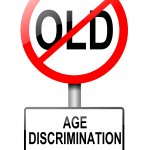
- Friday, July 18, 2025
- Stay Connected
Widgetized Section
Go to Admin » Appearance » Widgets » and move Gabfire Widget: Social into that MastheadOverlay zone
Is There Age Discrimination? Sometimes, Yes.
Six ways to combat age discrimination
 One of the issues often raised when a group of jobseekers gets together is the question of age discrimination. Recently I was invited to be a guest at Platform to Employment a program which was developed by The Workplace to address the needs of the long-term unemployed. Originally started in Connecticut, the program has had such great success that it was expanded to ten other cities early 2014. You may have seen it featured on 60 Minutes.
One of the issues often raised when a group of jobseekers gets together is the question of age discrimination. Recently I was invited to be a guest at Platform to Employment a program which was developed by The Workplace to address the needs of the long-term unemployed. Originally started in Connecticut, the program has had such great success that it was expanded to ten other cities early 2014. You may have seen it featured on 60 Minutes.
Several days before my visit, I received a list of questions that the group was hoping I could answer from the recruiter’s perspective. Not surprisingly, a number of the questions addressed the problem of age discrimination so I decided to prepare a few notes on what I’ve learned and my experiences as a recruiter. Here are the highlights.
Is there age discrimination?
One of the group’s biggest concerns was “Is there age discrimination?” Based on my experience, yes, candidates in their forties probably have it easier than those in their fifties.
But age discrimination is not just aimed at “seasoned” workers. Candidates in their thirties have it easier than those in their twenties, particularly new grads.
It’s no secret that there’s gender discrimination. Women are less likely to be hired for executive roles than men. And they make less money than men. For black women it’s even more difficult
Jobseekers are discriminated against for any number of things. They may be considered too old, or maybe too young. They may not be considered because they are a minority. However, if a company is trying to diversify its workforce they may not be considered because they are not a minority.
I once had an adjunct faculty member tell me when he applied for a full-time university position he was told that since they were focused on hiring minorities there were “no jobs for white men.”
Is age discrimination rampant? I don’t think so.
Over a year ago I worked with a candidate – a woman in her early sixties (she told me this I didn’t ask) – who was seriously considered for a senior position in a company with an overall “younger culture.” Although my client didn’t hire her, she did get a job with another employer.
A couple of years ago one of my friends – in her sixties – was actively recruited by a competitor. Another friend got a college degree later in life and began a teaching career in her mid-fifties.
Late last year an acquaintance in his fifties lost a job and was employed again within a month. How? He used his network to land a new position.
Do employers tell recruiters “no one over 40 or 50?”
One of the jobseekers wanted to know if employers tell recruiters not to bring them candidates over a certain again. If it happens I’m not aware of it. No one has ever said that to me as a recruiter. For one thing, it’s illegal. I have read that some employers “push back” when a candidate is pushing 60. But that is some employers, not all. I don’t research a candidate’s age and I don’t know any recruiters who do.
A word about LinkedIn photos
Whenever I’m speaking to a group the subject of putting a photo on LinkedIn often comes up. A lot of people who are afraid of discrimination – age or otherwise – don’t put a photo on their LinkedIn profile. This isn’t a good idea for two reasons: first, recruiters and hiring managers wonder why there’s no photo, wonder if you’re hiding something; and second, you can’t hide from a potential employer forever anyway.
In my experience, an employer will want to see you before they hire you even if that means a video interview. If you happen to be interviewing with an employer who discriminates against more senior candidates and you’re a more senior candidate it’s unlikely you’ll get the job anyway. So you’re just wasting everyone’s time.
However, you don’t need to include the dates when you graduated from college. The degree and institution are enough.
Six things you can do to combat age discrimination
Be up on technology. One of the things employers are afraid of is that more seasoned candidates may not have the technical abilities of younger candidates. So make sure that you keep your skills current and let employers know that.
Be available. Employers may be concerned that more senior staff may not be as available in this 24/7 work culture that we have today. Employers want to be sure that they can email, text, etc. evenings and weekends and get a response because you have your smart phone or tablet with you.
Stay current. Make sure that you are current with your professional image. Are you wearing the same hair style you did five years ago? Or the same eyeglasses you wore ten years ago? How about that interview suit? You don’t need to have the latest trends but it’s a good idea to be as current as you can. How you look makes a difference.
Don’t advertise your age. Avoid phrases like “back in the day” or “when I was first starting out” or anything that will remind anyone you could be their mom or dad. Younger candidates should avoid saying things like “my mom always says that” – there’s no need to remind the interviewer that she could be your mother.
Target companies not jobs. Know that there are numerous companies – many are listed on AARP’s Work Reimagined site – who value experience over youth. Target them. Use your network to get in to companies whenever possible. Remember when you’re referred by someone you have a better chance than when you respond to a job posting.
Have a good attitude. Don’t go in with the expectation of being discriminated against. And remember there are people who are old at 35 and young at 60. It has a lot to do with who they are.






You must be logged in to post a comment Login